
The legendary 'Hippo Man', Mayinda Orawo, an elder of the Luo people, Western Kenya 1973. Photo: David Fanshawe. He became the figurehead of African Sanctus

Altos of the Bournemouth Symphony Chorus, recording African Sanctus, 1994

Front page of full score in DF's original handwriting

Choral writing at start of Sanctus movement
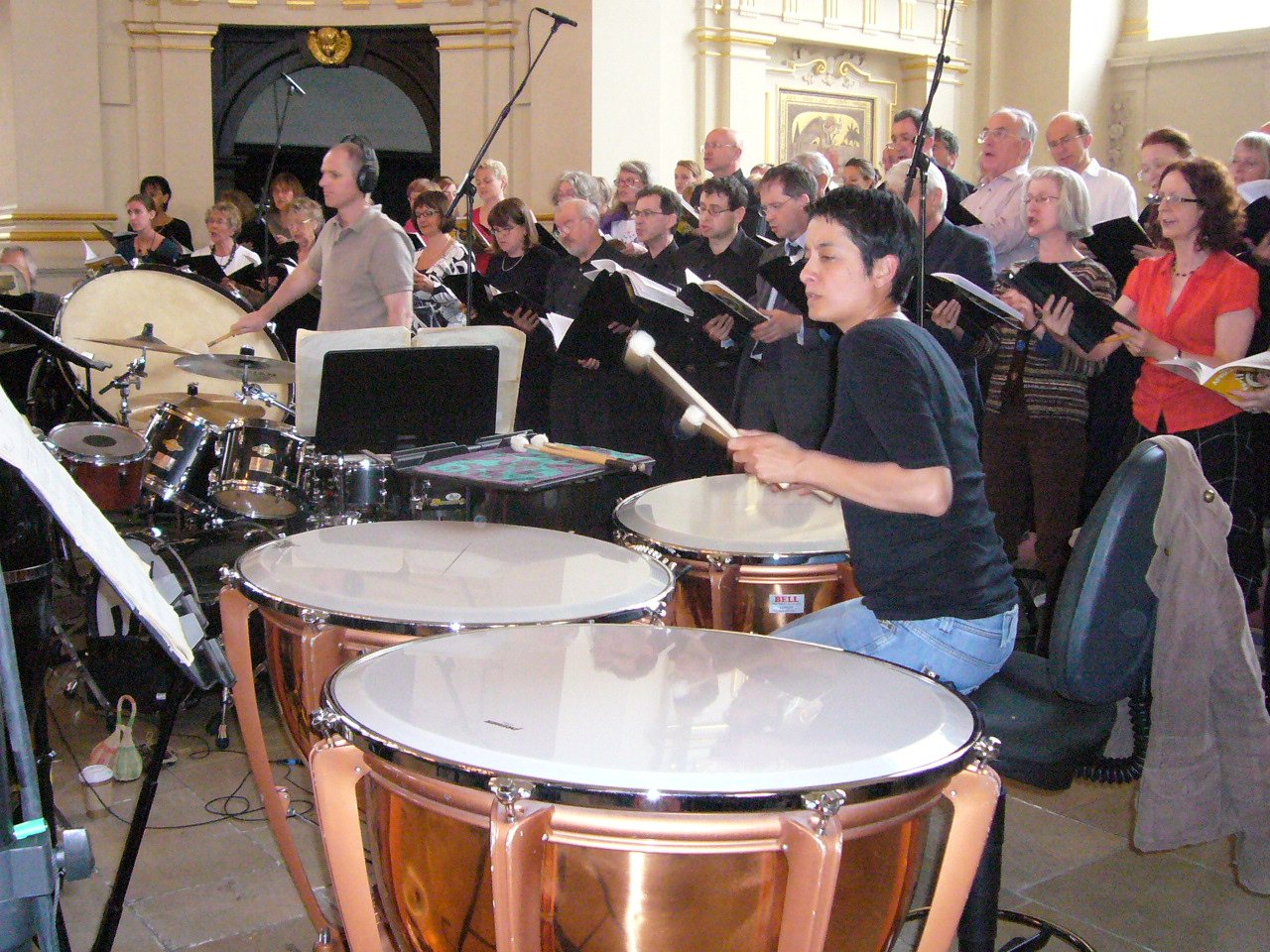
BackBeat percussionists Simone Rebello and Damian Harron in rehearsal with the London Chorus, St Martin-in-the-Fields, London 2010
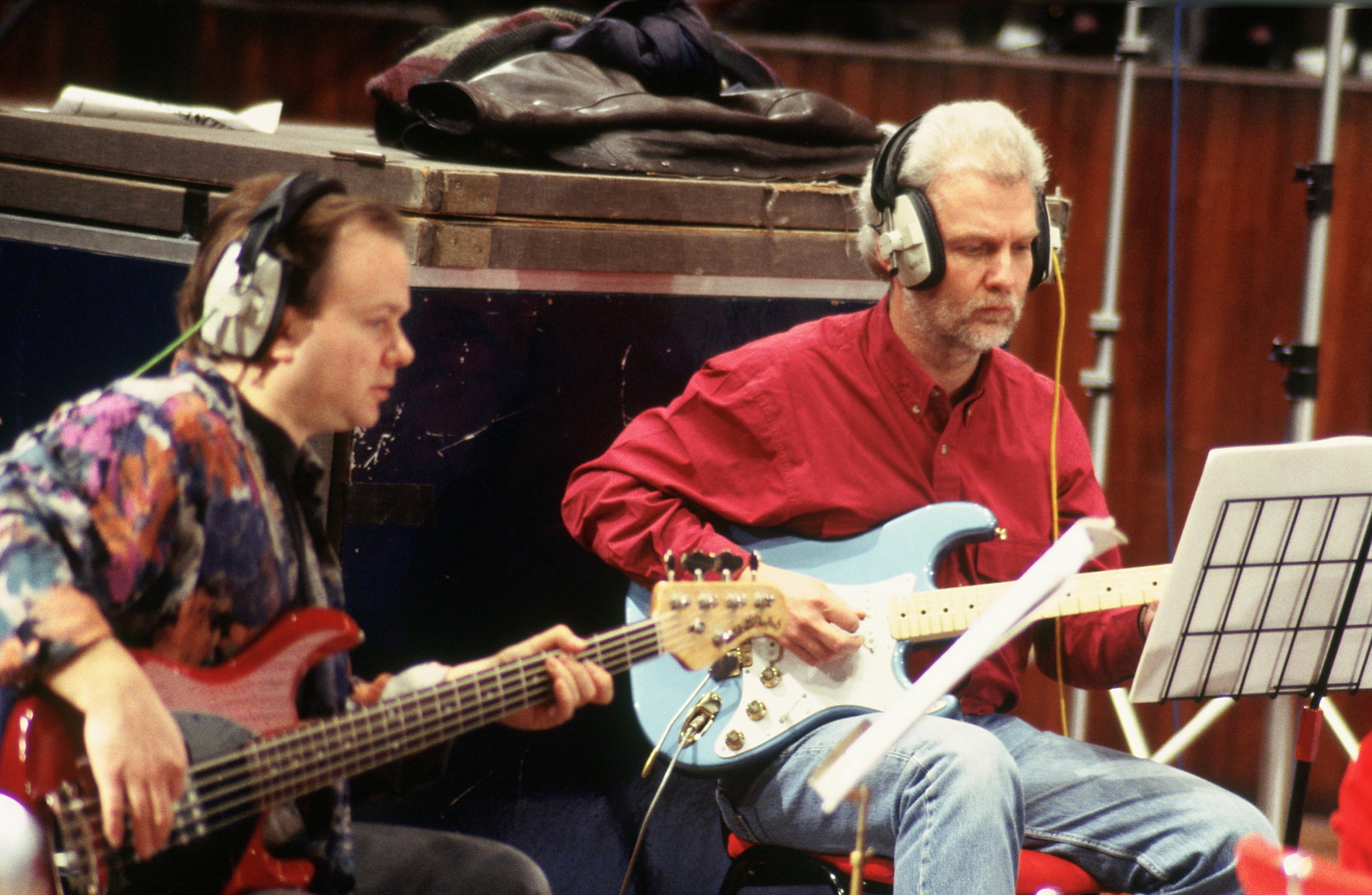
Composers and chosen guitarists, Andy Pask and Alan Parker recording African Sanctus in the Wessex Hall, Poole 1994
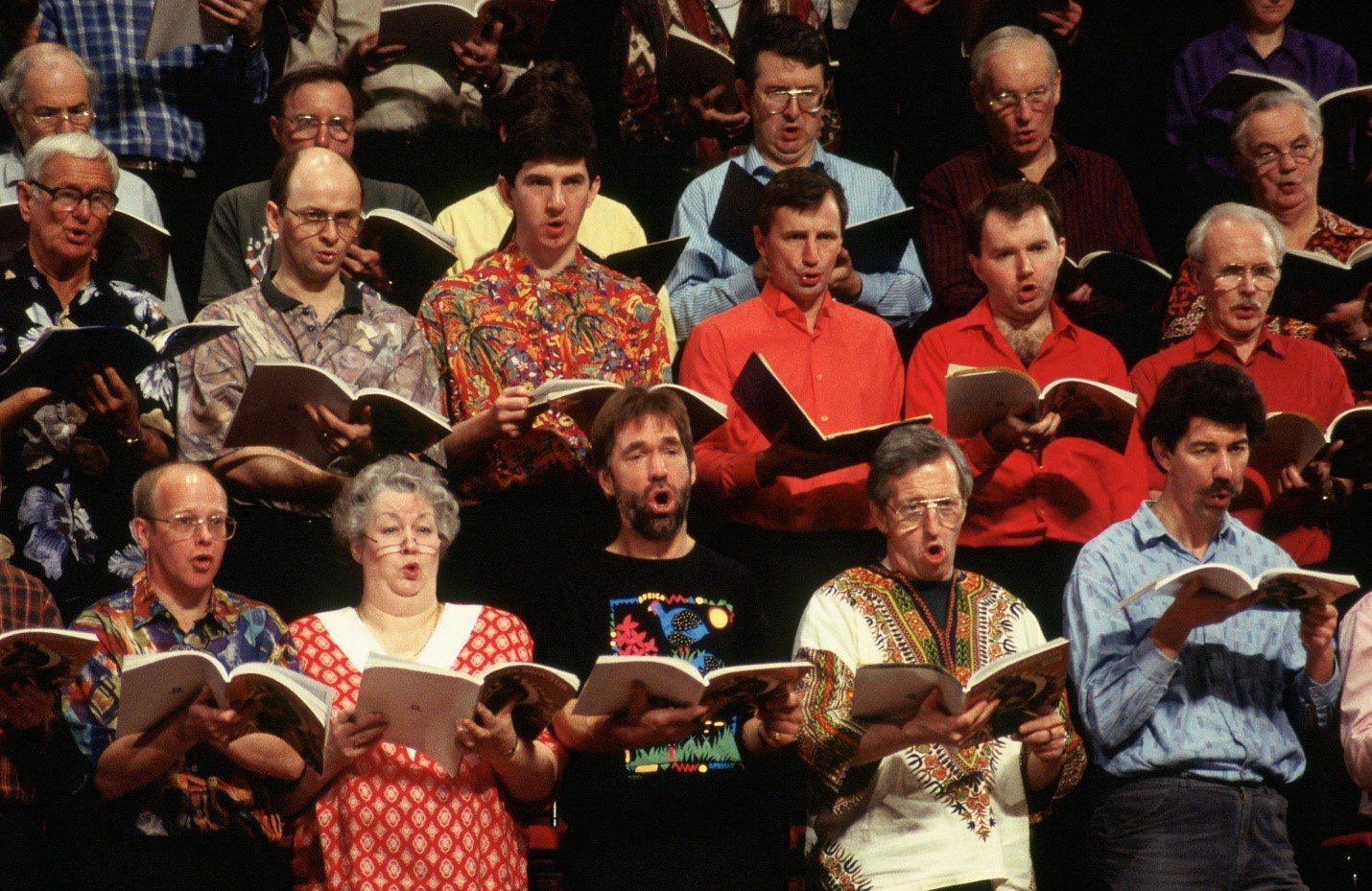
Tenors and Basses of the Bournemouth Symphony Chorus recording African Sanctus, 1994
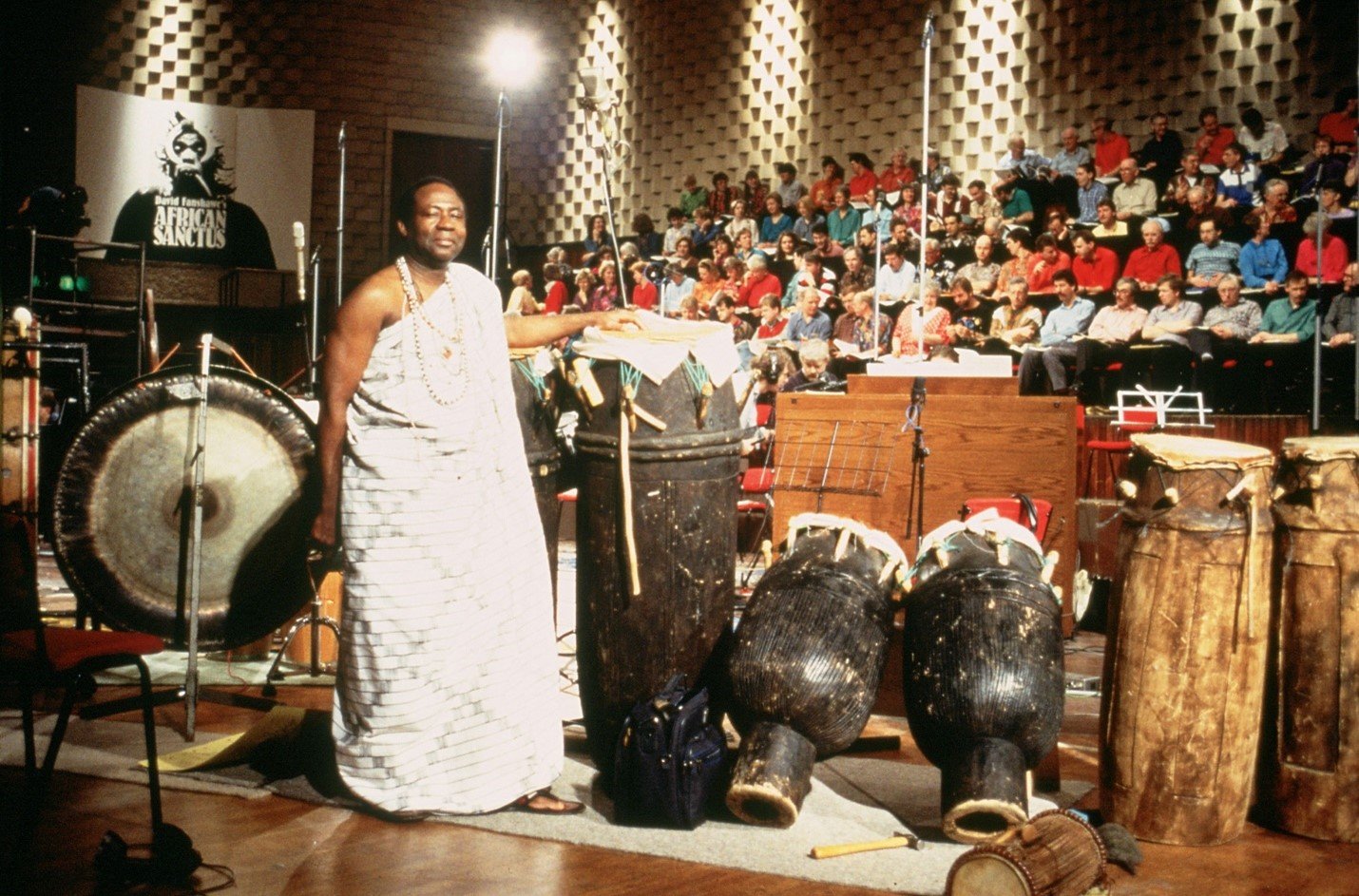
Kwasi Asare Kantamanto, the master drummer from Ghana, recording with the Bournemouth Symphony Chorus, 1994
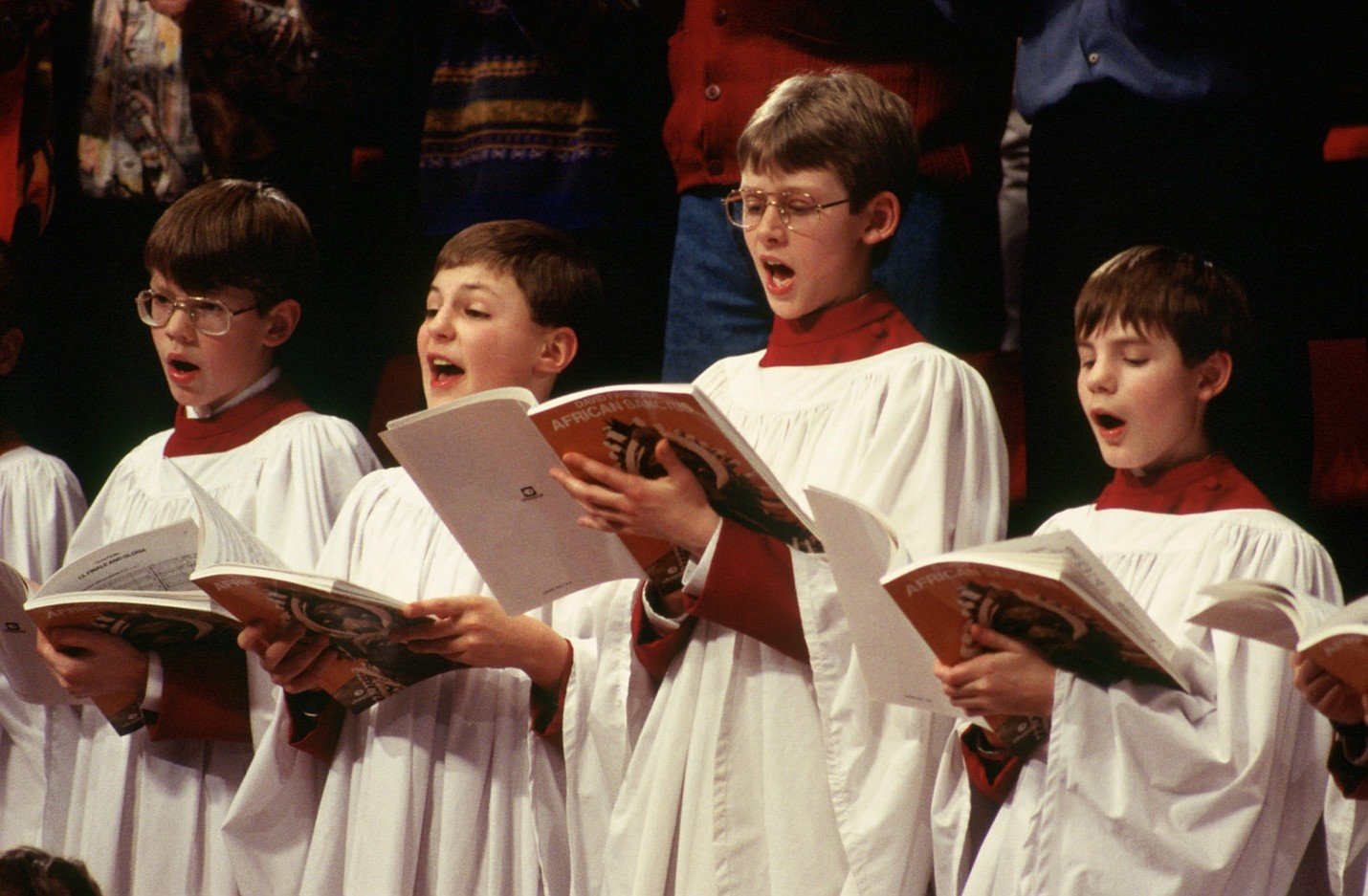
Choristers of St George's Chapel, Windsor Castle, recording The Lord's Prayer, 1994
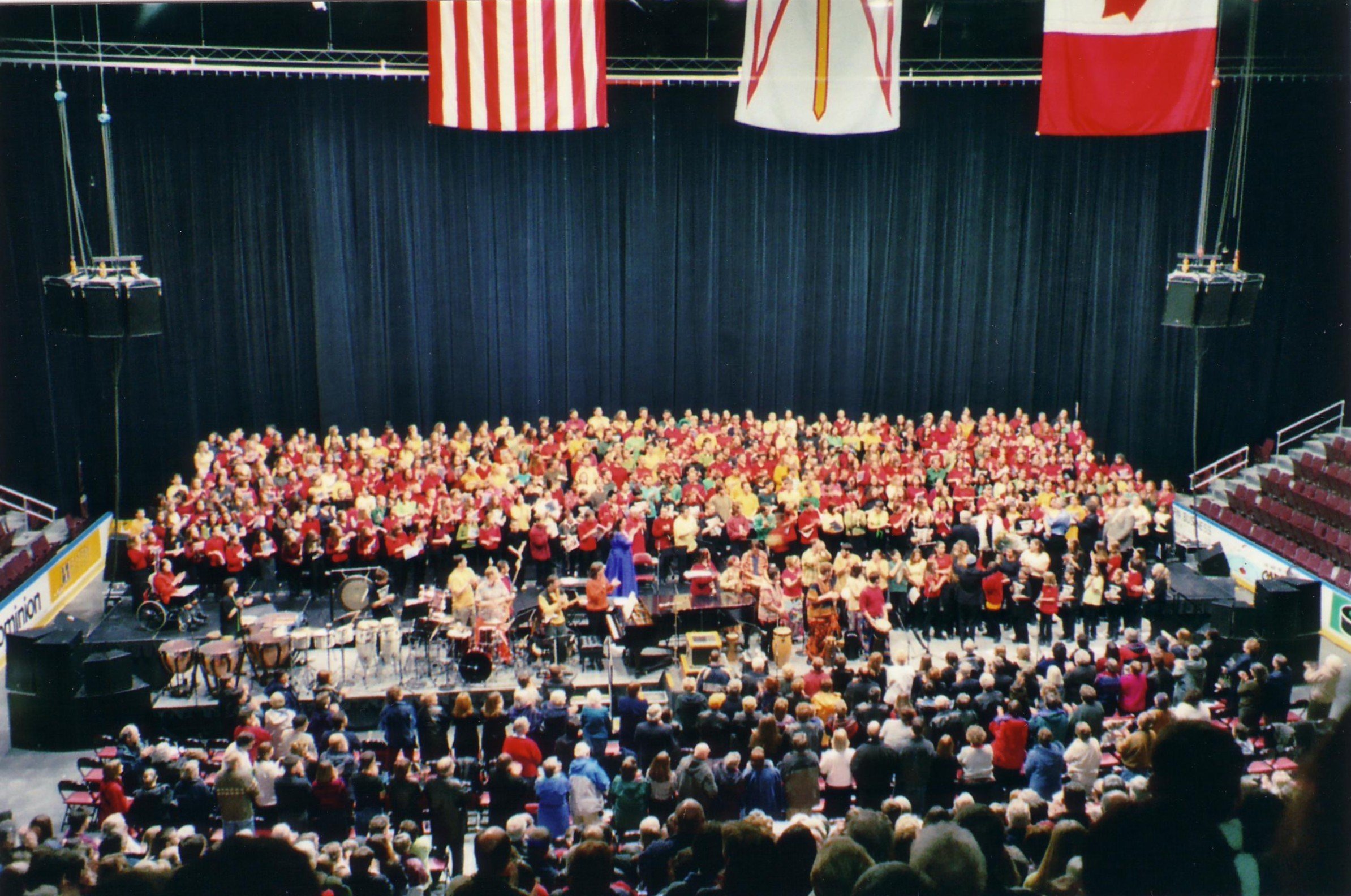
African Sanctus performed by St Johns Choir in Newfoundland (on a converted ice-rink). The massed choir is largely secondary school children.
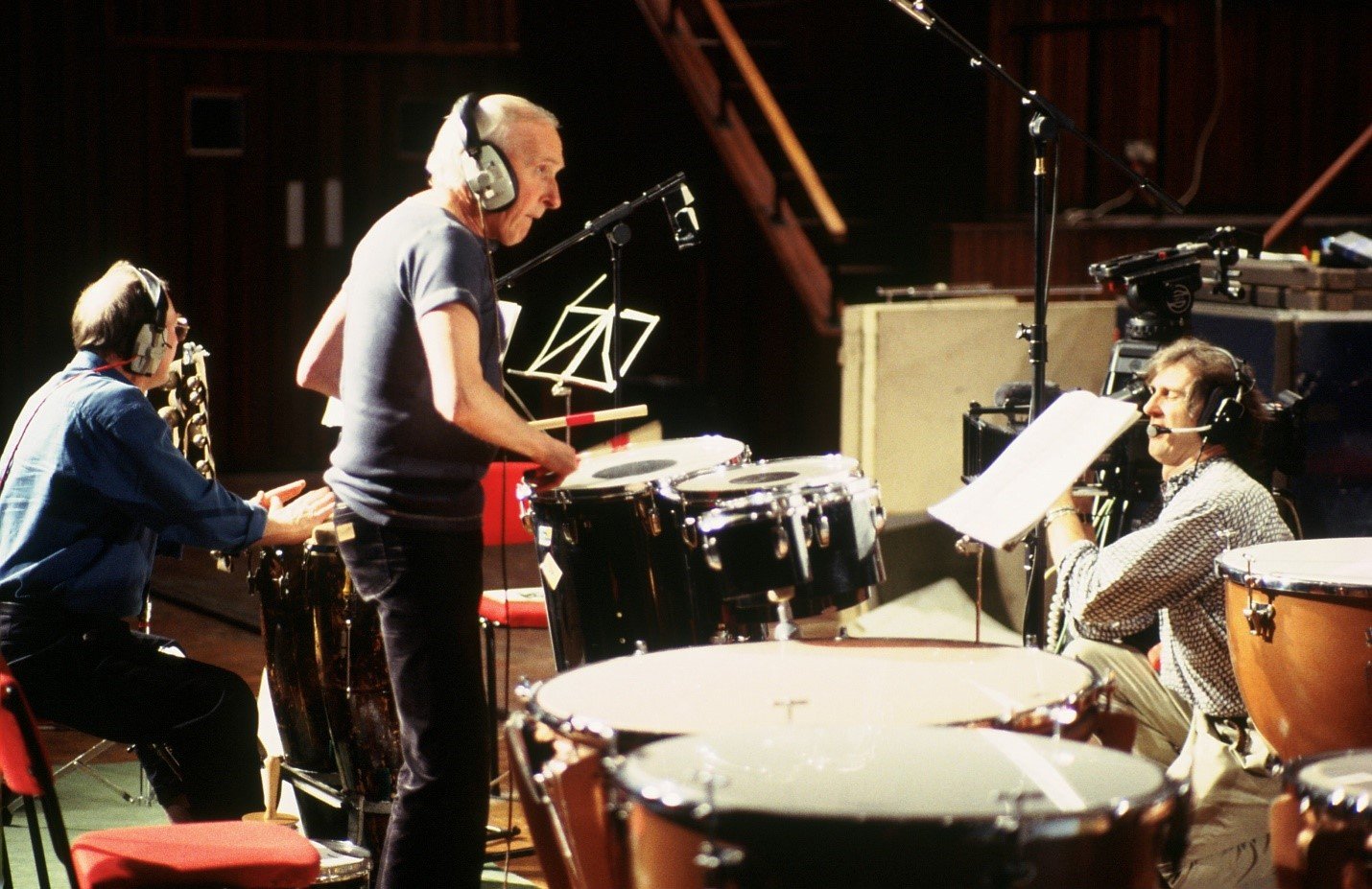
World-class timpanist Eric Allen recording African Sanctus with the Bournemouth Symphony Chorus, 1994
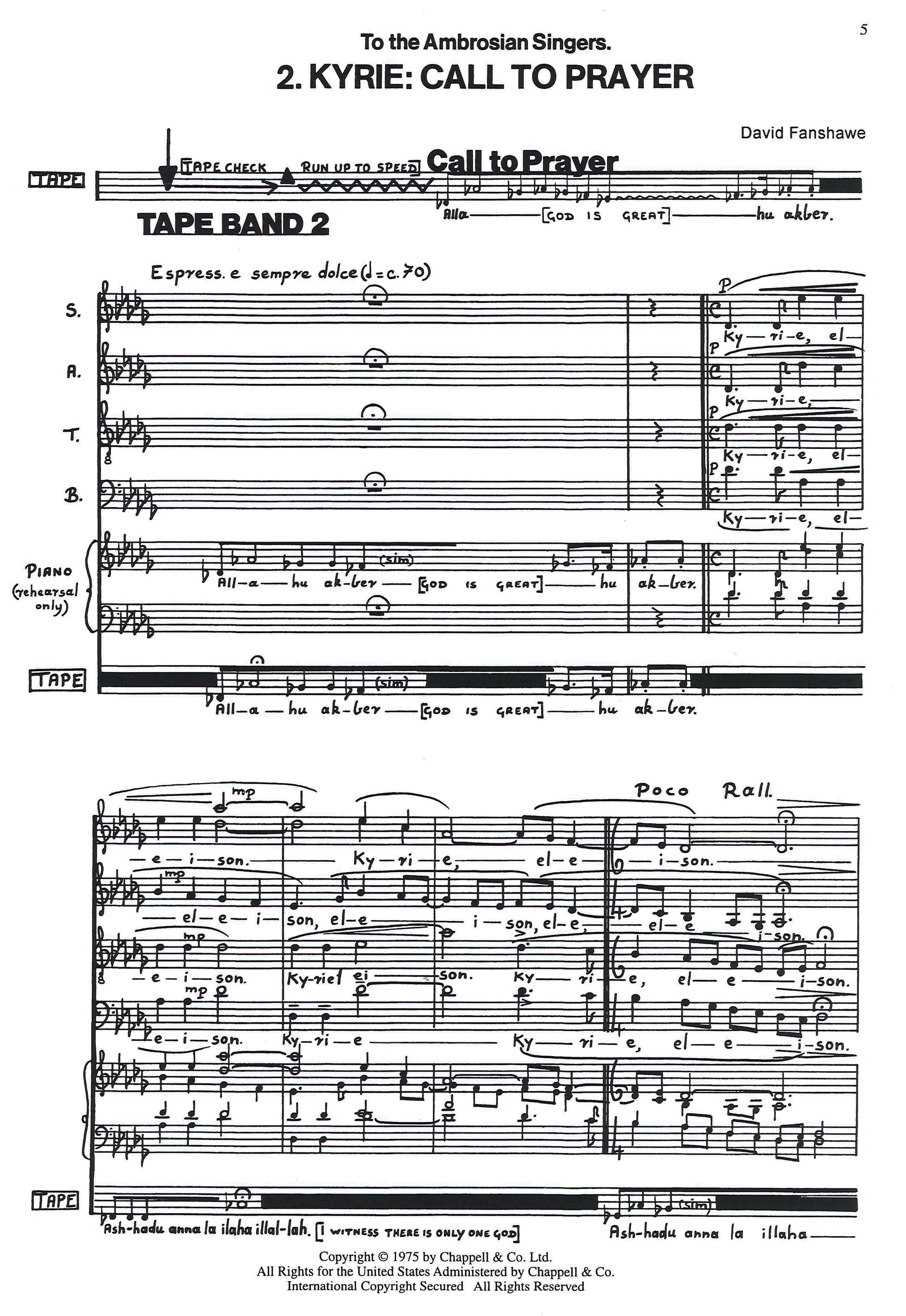
Score of Movement 2, Kyrie: Call to Prayer showing taped Muezzin and SATB chorus
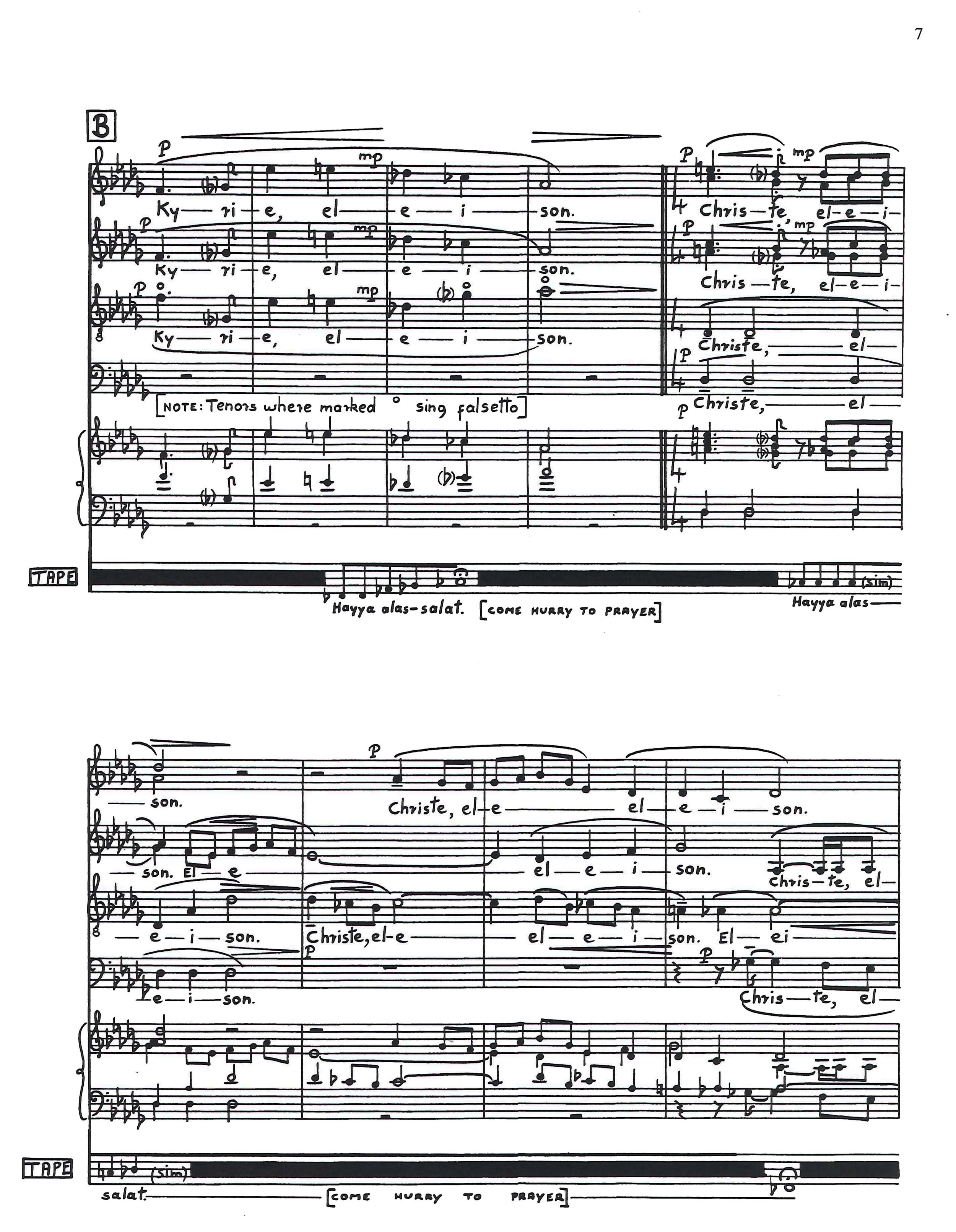
Continuation of choral writing in Movement 2, Kyrie: Call to Prayer

Sopranos, Tenors and Basses of the Bournemouth Symphony Chorus, recording in Wessex Hall, Poole 1994
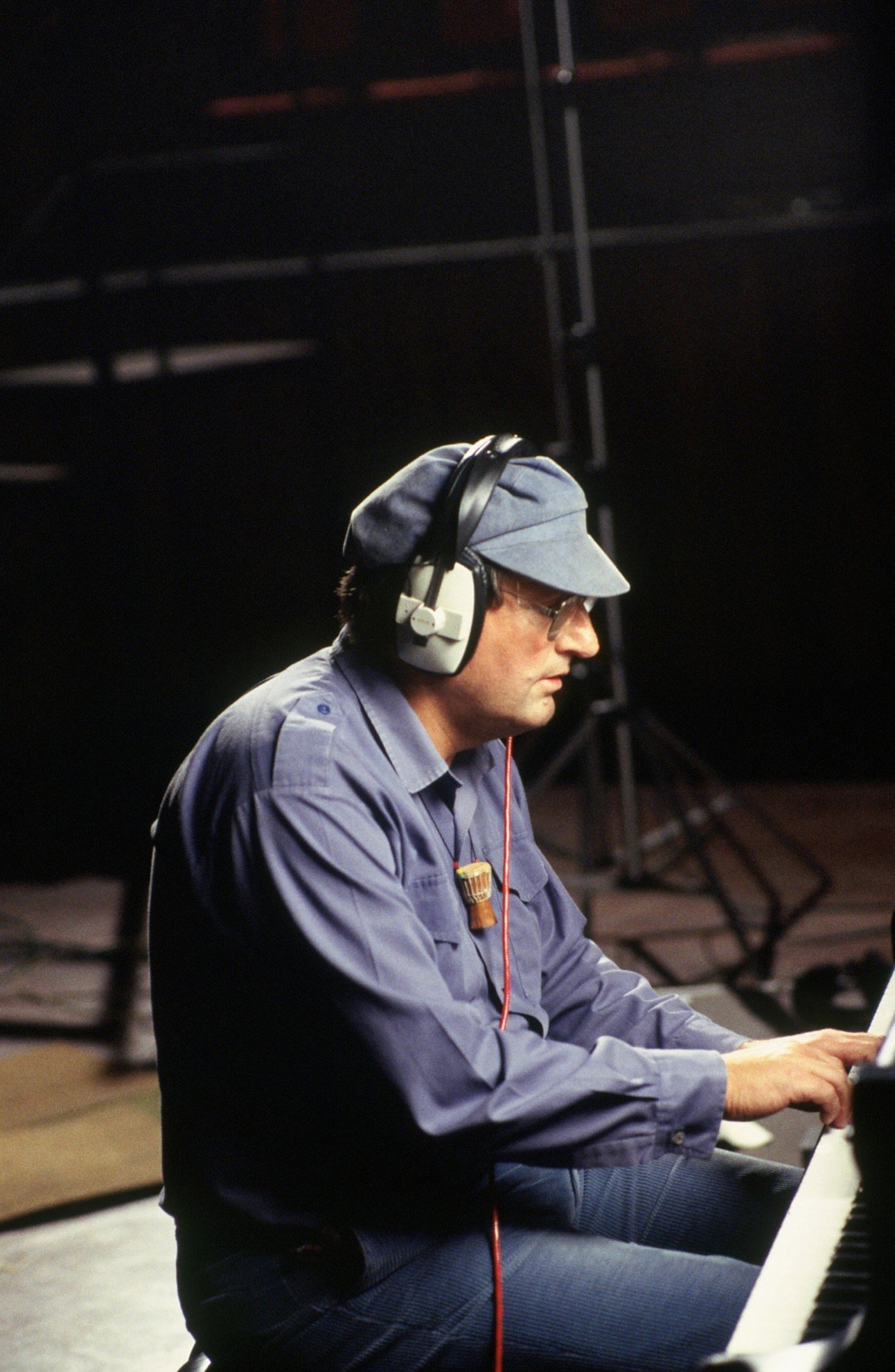
DF plays and records Love Song - piano solo at Wessex Hall, 1994

The late Ghanaian master drummer, Kwasi Asare Kantamanto, recording African Sanctus, 1994. Kwasi's philosophy is to explore the spiritual drumming and dancing from village life.

Acholi Bwala Dance, Gulu, Uganda 1969. They appear in African Sanctus, Movements 1, 8 and 13. Photo: David Fanshawe

A moment of reflection during the 1994 recording
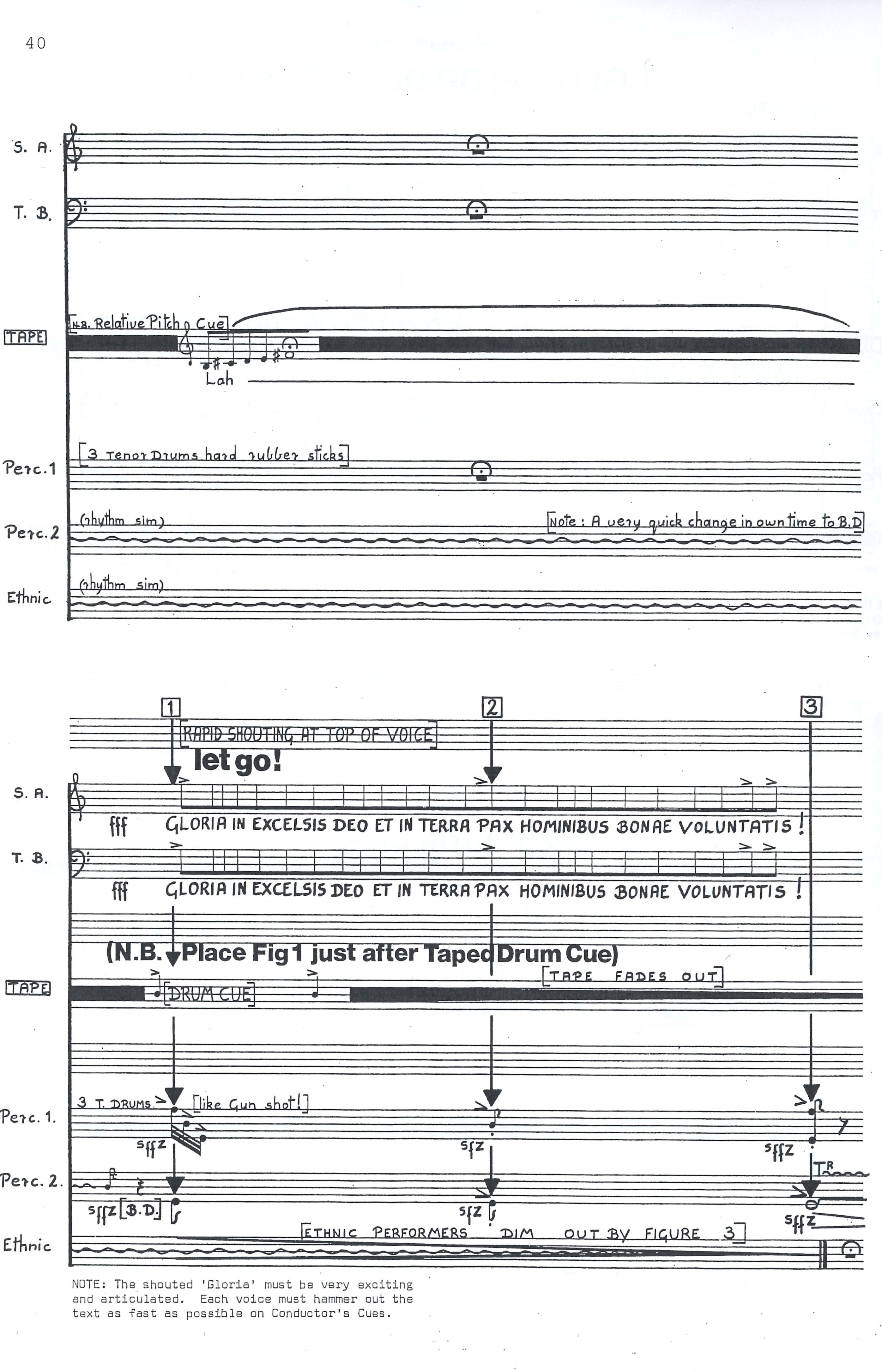
Shouted Gloria of Movement 3, Gloria
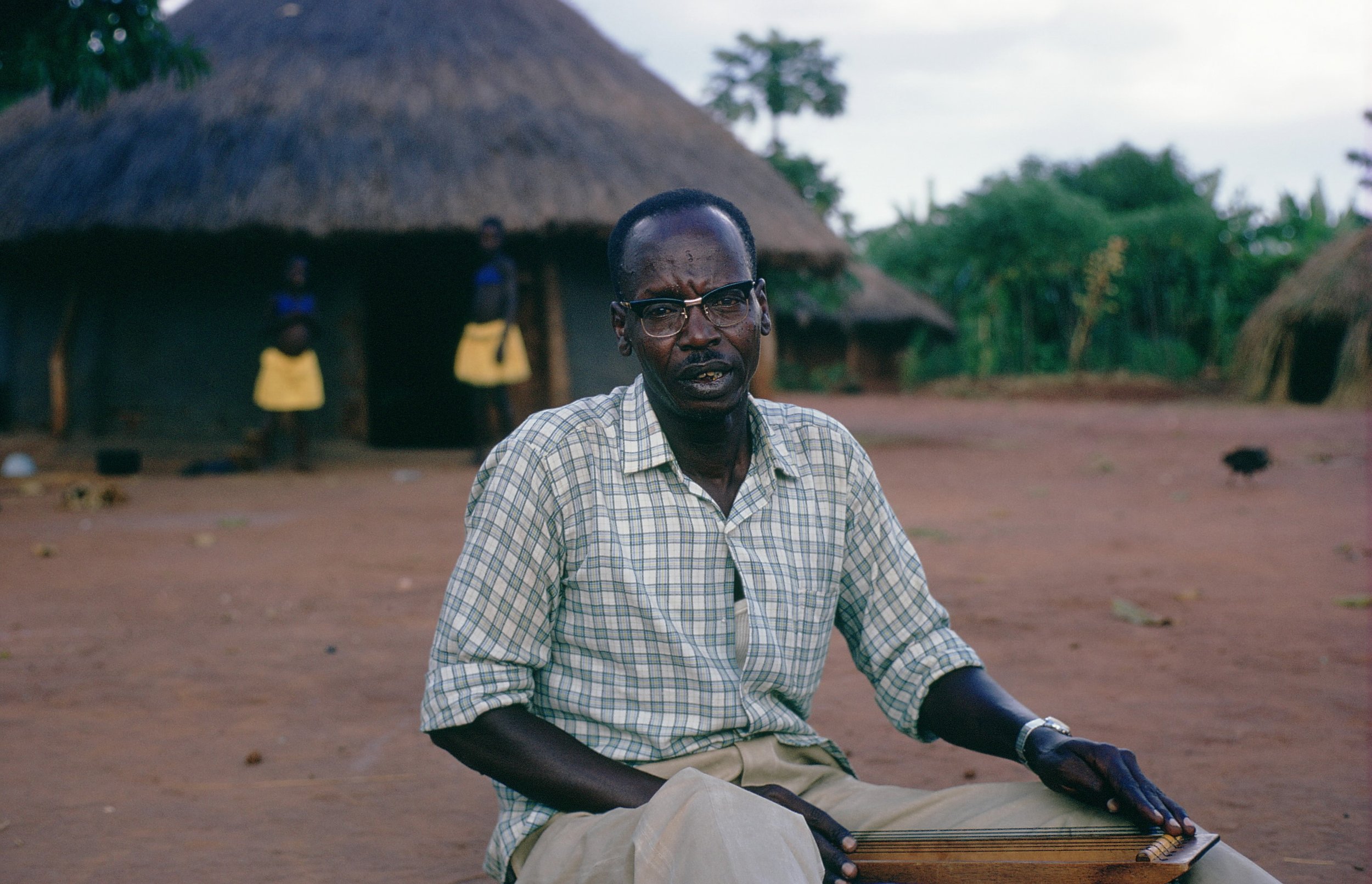
Latigo Oteng plays his enanga thumb harp for his Rain Song, Gulu, Uganda 1969. Latigo's Rain Song features in Movement 7, the Crucifixus. Photo: David Fanshawe

Masai girl recording her milking song, heard in Movement 10, African Chants. Kenya 1973, photo: David Fanshawe
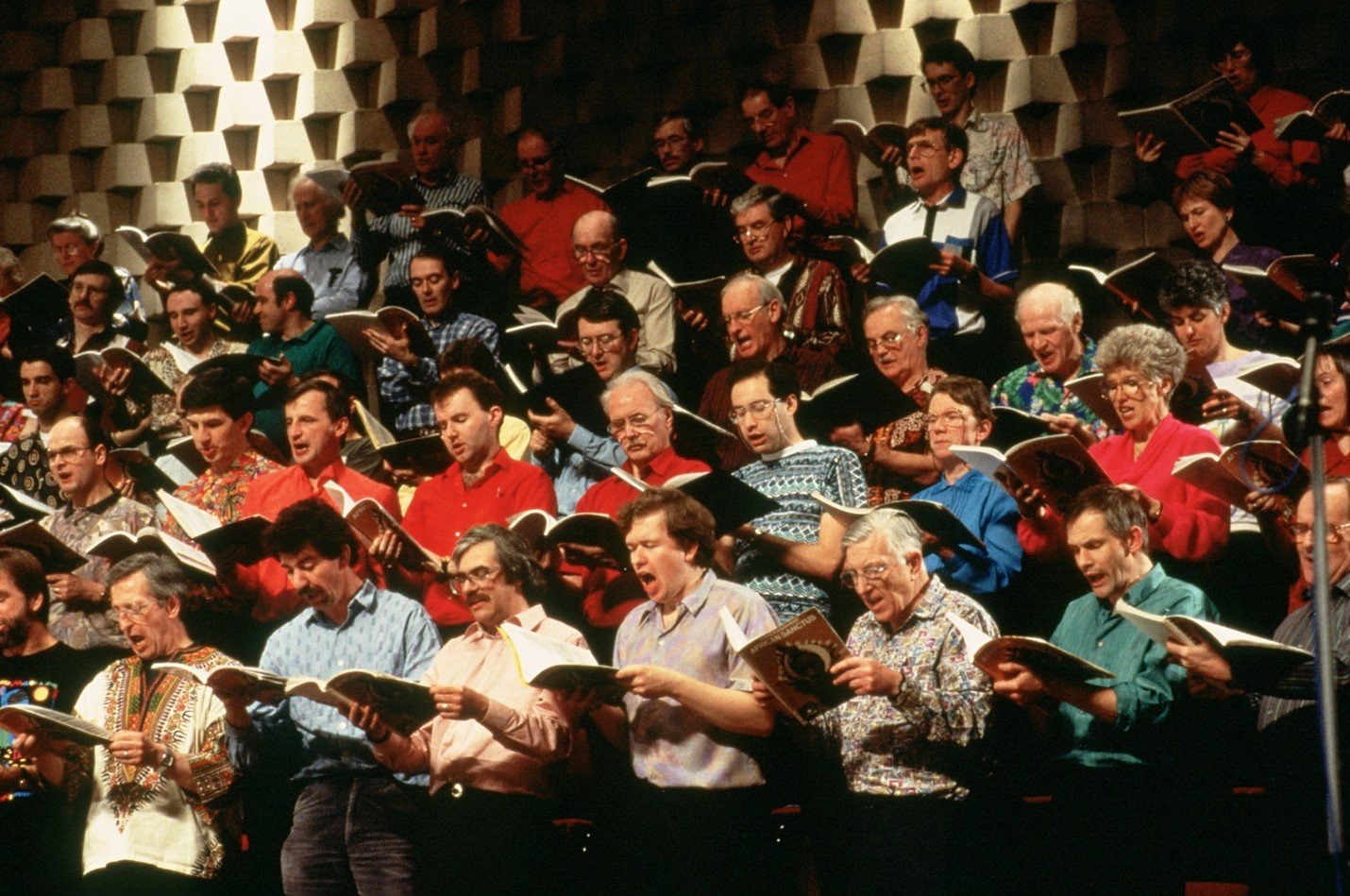
Members of the Bournemouth Symphony Chorus recording African Sanctus, Wessex Hall, Poole, 1994
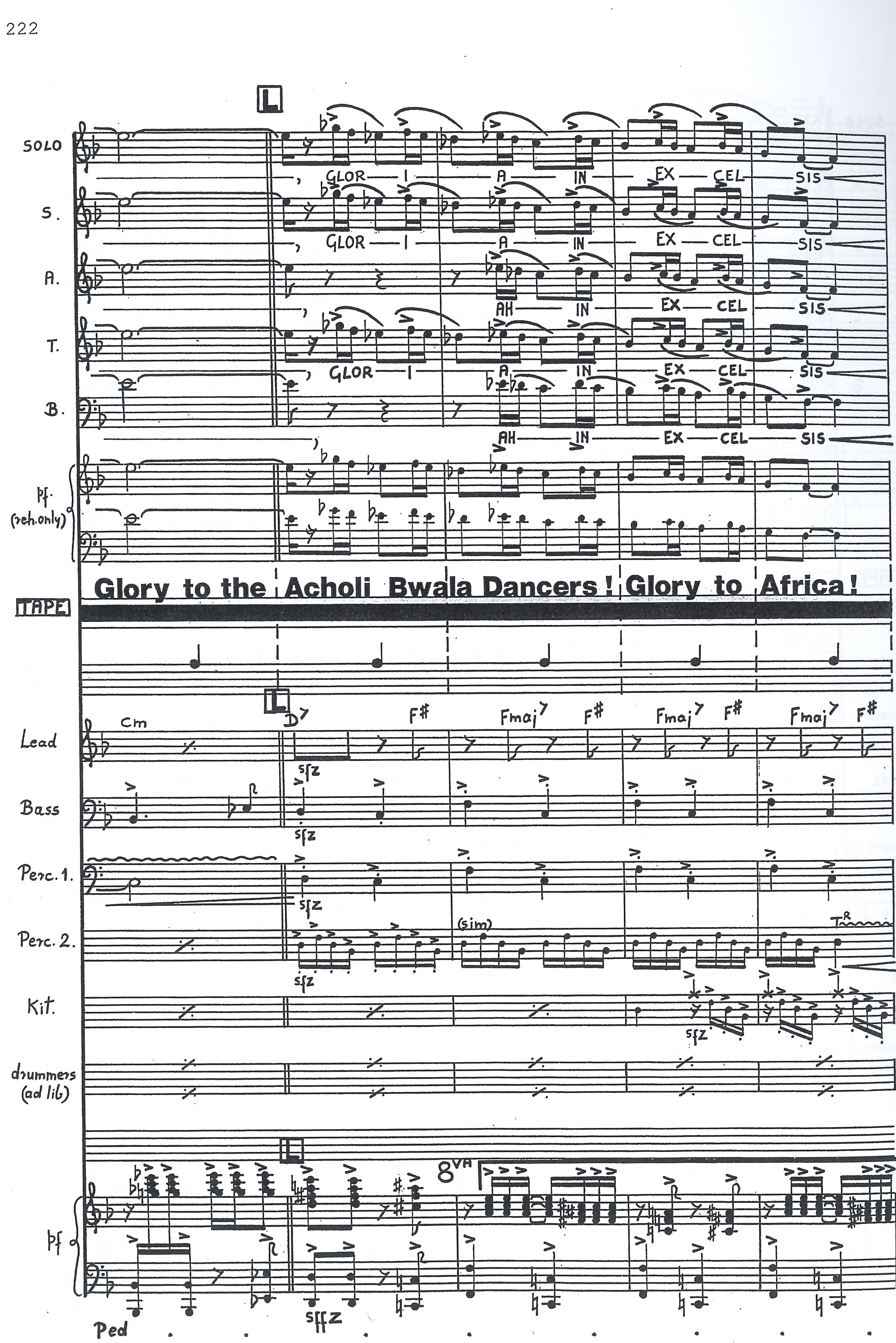
Penultimate score page of Movement 13, Finale & Gloria, showing tape part

DF mixing the sound, Sherbourne 1981
























-
“Afro-Latin, tribal-choral masterpiece.” - The Observer
-
“A work of pure vitality and excitement in which two distinct worlds meet.” - The Australian
-
"AFRICAN SANCTUS is a highly original work in which very different cultures have been imaginatively and ingeniously fused…The music is as fresh today as it was when first heard in 1972 and its message of peace, goodwill and understanding between nations just as relevant." - Sir David Willcocks
-
“Fanshawe’s Sanctus, electrifying, stirring.” - South Africa, Pretoria News
-
“These performances have the size and feel of a millennium turning event. The significance of AFRICAN SANCTUS hardly stops at its being a symbolic meeting of two worlds. The work deeply engages its audiences... AFRICAN SANCTUS has in fact become an unintentional Requiem.” - Philadelphia Inquirer
-
"The effect was spellbinding and won an ovation from a capacity audience." - The Times, UK (Royal Albert Hall)
-
“A very engrossing, musically rewarding piece.” - Washington Post
-
“Throughout AFRICAN SANCTUS, Fanshawe provides… effective juxtaposition of African music and his own choruses the humanity and reverence we share with the Africans who Fanshawe recorded shines through... an uplifting piece… exhilarating with its strong rhythmic drive.“- Register Guard, Eugene, Oregon
-
"Mass meets Maasai - majestically ecofriendly." - Melbourne Age
-
"Literally unique, both in conception and completion." - Antony Hopkins, BBC Radio 3
-
“I have performed in innumerable ways over the past fifty years in both music and drama. “AFRICAN SANCTUS” was, however, the most deeply moving and fulfilling of any performance in which I have ever been involved.” - Choir Member
-
“It seems clear that Fanshawe was inspired to write this work in the belief that music unites us and builds bridges, not only between cultures but, with the increasing passage of time, between our shared present and our shared past.” - Paul Gray, Birmingham Symphony Hall, 2022
-
“I heard David’s AFRICAN SANCTUS at the age of 13 and was so deeply moved by it. His music opened up a world to me, literally and he left us with the most perfect LORDS PRAYER which 30 years later moves me still.” - Ruthie Henshall, 2010
-
“AFRICAN SANCTUS…Legendary oratorio out of Africa.” - Miami Times
-
“THE LORD’S PRAYER… Rich evocative simplicity.” - Financial Times
-
“AFRICAN SANCTUS operates on so many levels at which the body and spirit can respond.” - Maggie McCoy, Dominion Chalmers Church, Ottawa, Canada
-
“We first encountered David Fanshawe at the Royal Albert Hall when he presented African Sanctus…the place was packed out, and the atmosphere was terrific. The music was like nothing we had ever heard before – totally unexpected, original, unique. We went back to Bournemouth, and told our choir committee –of this amazing new choral work and a performance was planned.” - Sandrey Date, Bournemouth Symphony Chorus
-
“Ethnomusicology at its most rewarding” - The Citizen, South Africa
-
"A work of ethnic diversity and multi-culturalism” - Toronto Globe and Mail
-
AFRICAN SANCTUS is seminal on two accounts – first for its recognition of the value of traditional African music (at a time when many still looked down on African or traditional culture) and for its pioneering marriage of tape and live performance. To pick one example, Fanshawe combines the muezzin with a choir singing the Kyrie in a way that is totally respectful to both. - Simon Broughton, editor of Rough Guide to World Music and Songlines
African Sanctus
African Sanctus has received close to two thousand live performances in over thirty countries across the five main continents. It has long been established in the choral repertoire. “The music is as fresh today as it was when first heard in 1972.” wrote the late Sir David Willcocks.
“In 1969, I went to Africa for the first time with the idea of writing a major work… On the hill of the citadel in Cairo, overlooking the Nile one evening, I suddenly heard in my head the unlikely combination of a western choir accompanying the Islamic Call to Prayer.” Some years later, when the score was published, “I still remember that moment, hoping that one day, it might be possible to hear my music on the concert platform, harmonised with the field recordings I was privileged to find.” David Fanshawe
David Fanshawe’s now legendary journey up the Nile (1969-73) became the framework of the composition, a symbolic cross-shaped pilgrimage. Armed with one rucksack and a stereo tape recorder, he succeeded in recording music from over fifty tribes in Egypt, Sudan, Uganda and Kenya, achieving such a close rapport with many local communities that they gave permission for their performances to be specially recorded. The African Sanctus journeys were sponsored by the Ralph Vaughan Williams Trust and later the Winston Churchill Memorial Trust.
African Sanctus is a celebratory and visionary work expressing unity between peoples, their faiths and, above all, their music. Its message is ‘One Music - One God.’ It is an unorthodox setting of the Latin Mass integrated with the composer’s recordings of authentic traditional African music. The taped music is heard in counterpoint with live chorus, soprano soloist and instrumental ensemble. For David Fanshawe, there were no musical barriers.
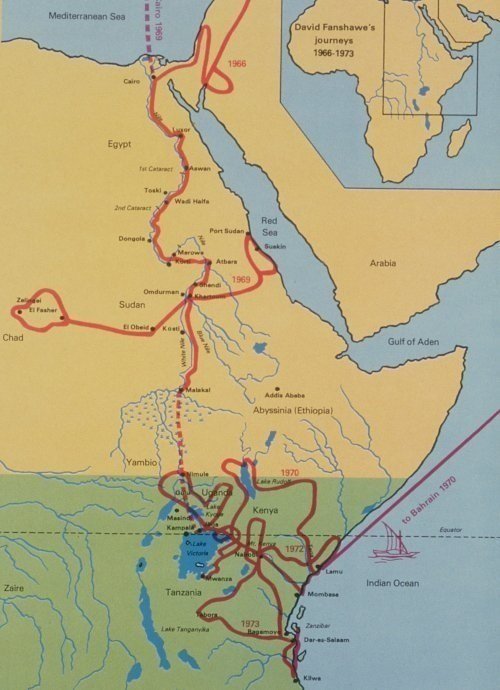
The Sanctus Journey (1969-73)

